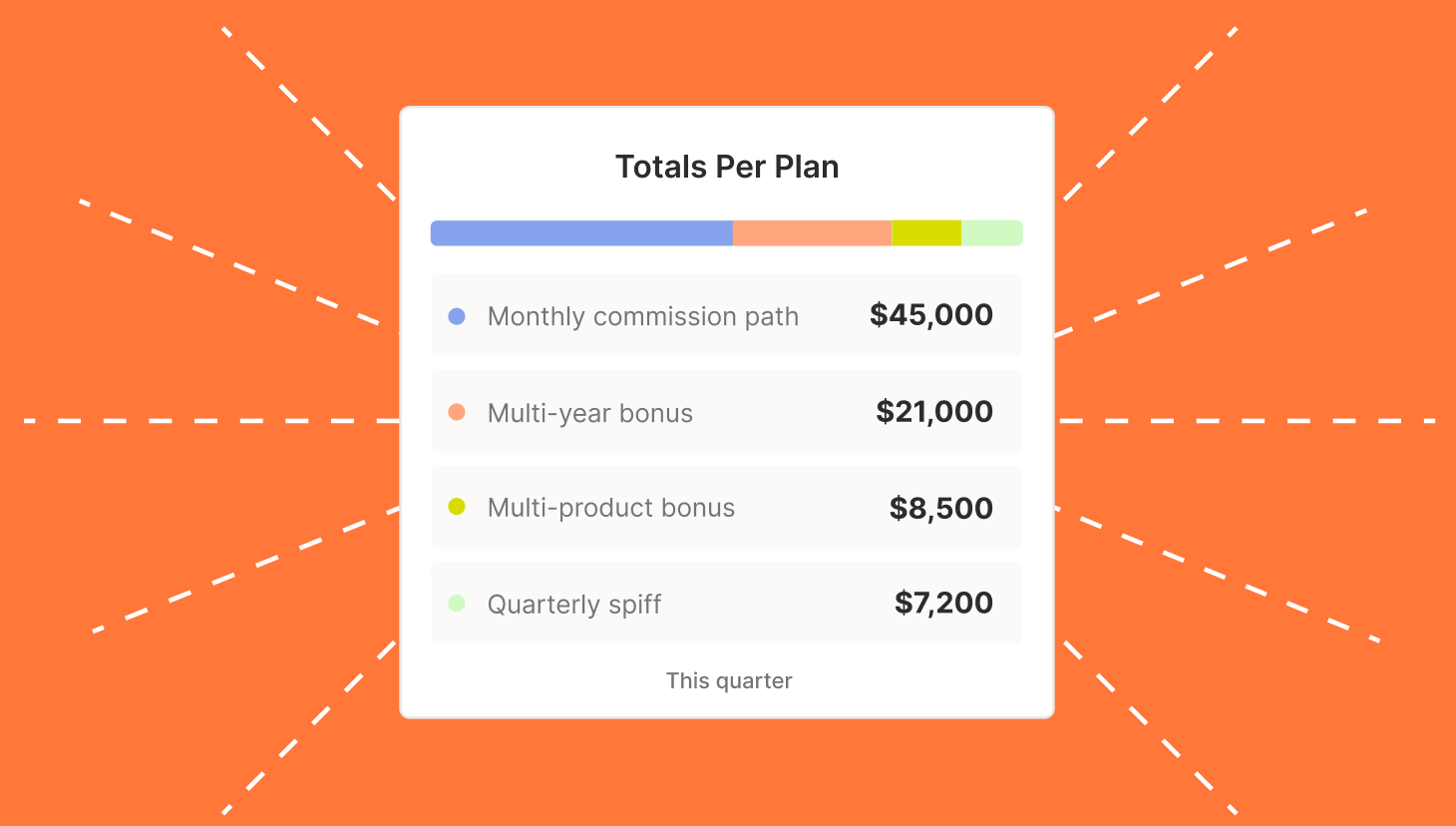Here’s a scenario: It’s the start of the month and that means it’s time for sales commissions, which you’re in charge of calculating and paying. After you spend time to ensure it’s all accurate, a rep comes back to you and says “My commission statement is wrong!” or if you’re a rep, you’ve gotten a commission statement and thought “This doesn’t look right…”
This problem happens within nearly every sales organization and can cause serious employee turnover. I can’t tell you how many people I’ve interviewed who said they’re leaving their current job due to feeling like there’s no consistency in their pay. As a sales leader, it falls on you to ensure this doesn’t happen. Below are a few ways leaders can create transparency, alignment, and accuracy when it comes to calculating sales commissions.
Try QuotaPath for free
Try the most collaborative solution to manage, track and payout variable compensation. Calculate commissions and pay your team accurately, and on time.
Start TrialEnsure your primary data is accurate
No one likes updating their CRM, I know. It can be tedious and time-consuming. But the most surefire way to an incorrect outcome is inaccurate inputs. One of the best ways to make sure the data is accurate in your CRM is to automate, automate, automate. Want to mark your opportunity ‘Closed Won’? First, you have to make sure the contract terms and ARR are correct. Need to make sure close dates aren’t in the past? Set up an automatic email reminding sales reps to keep their deal dates up to date.
Use a tool to help
It’s no question that using commission software is an easy way to automate and calculate commissions. However, if you use something basic like a spreadsheet or an antiquated commission software tool, your reps might not understand their earnings. Using a rep-focused tool like QuotaPath allows complete transparency between people earning commissions and those paying them.
Make sure everyone understands their compensation plan
Every person involved with compensation should understand the plans: sales reps, sales leaders, the finance team, and sales operations. If everyone understands which deals count toward quotas, at what rate accelerators kick in, whether reps get paid upon cash receipt or upon closing, etc. then there will be fewer questions later on.
Simplify your commission structure
The more complexity there is in a sales compensation plan, the more likely you are to have issues during payout. A good rule of thumb is to have 3 or fewer components (called ‘Paths’ within QuotaPath) in your compensation plan. If you’re looking for an example, AJ Bruno shared his favorite compensation plan.
By following this advice, you should be able to reduce inaccuracies within your sales commissions. However, the only way to remove human error from commission statements is to entirely automate your commission calculating. Great news! You can use QuotaPath to automate your entire commissions process. Try it now for free!



